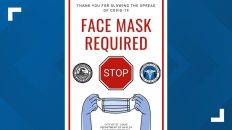“Congress shall make no law respecting an establishment of religion, or prohibiting the free exercise thereof; or abridging the freedom of speech, or of the press; or the right of the people peaceably to assemble, and to petition the Government for a redress of grievances.”
-Amendment I, The U.S. Constitution
Despite the first amendment’s protection of free speech, it seems daily we learn of another entity or person who has been banned by one or many of the big tech platforms. Judging from the current cancel culture, no one, including the president of the United States, is safe from the wrath of the big tech overlords who appear to be competing for who can silence, cancel and censor the most entities and voices. One might find it difficult to believe that the aforementioned is the first amendment of the US constitution. Our founders were deliberate in prioritizing freedom of speech because they understood that as Eric Zuesse says, “Censorship is the death of Democracy. Free expression is the key to free society, limiting it is the path to dictatorship.” or in the words of Ben Franklin “Without Freedom of Thought, there can be no such thing as Wisdom; and no such thing as public liberty, without Freedom of Speech. Whoever would overthrow the liberty of a nation must begin by subduing the freeness of speech.”
The egregious cancel culture we are witnessing, threatens the existence of our first amendment, thereby compromising the free market of ideas and enterprise. Cursorily, cancel culture appears to be a modern iteration of Herbert Marcuse’s Liberating tolerance meaning, “intolerance against movements from the Right and toleration of movements from the Left.” Sebastian Kaleta fears, “Cancel culture aims to make people afraid to express their opinions” and Big Tech is working with the far left to promote this environment which has more in common with the methods of Soviet Russia than modern democracies. He goes on to say, “The signals from the left are clear — if you do not agree with us and you criticise us, the ‘system’ we have created will not only get you fired, but it will also limit your access to certain services and products.”
While those on the political right seem to be the primary target, the burgeoning success of this phenomenon is largely owed to the promulgation by big tech entities, possessing a tremendous sphere of influence, creating a bipartisan issue and a peril from which no one is safe.
According to pewresearch:
- Polling demonstrates this is a bipartisan concern.
- Three-quarters of U.S. adults believe that social media companies “intentionally censor political viewpoints that they find objectionable
- 72 percent say that social media companies “have too much power and influence in politics today.”
- 80 percent of Republicans have little or no confidence “in social media companies to determine which posts on their platforms should be labeled as inaccurate or misleading,” 52 percent of Democrats have this view.
Contrary to the argument that these companies are private entities retaining the right to control publication as they please, Section 230 grants these companies privileges and legal impunities that are reserved for net neutrality platforms whereby acceptance of such accordance, they are no longer private publishing agents. “A lot of people will say…that without Section 230, you wouldn’t have had the rise of social media because they would have been sued to oblivion,”according to tech ethicist David Ryan Polgar, a Forbes.com contributor. The linchpin of Section 230 states; “No provider or user of an interactive computer service shall be treated as the publisher or speaker of any information provided by another information content provider.” Although no one in the mid 1990s could predict the nascent internet would become what it is today, the law intended to shield services such as AOL, Prodigy, and CompuServe from liability for comments posted by members on their message boards This paved the way for an open exchange of information and opinion on those forums, and on Facebook, Twitter, YouTube, and other online platforms today. It also enabled e-commerce the hosting of customer reviews on sites such as Amazon and Yelp without fear of retribution from disgruntled manufacturers. As Laurel Lehman says, “it protects individual citizens as well. Without the provision, you could be sued for inadvertently forwarding an e-mail with specious claims or for moderating (or not moderating) the discussion in a Facebook group. Essentially, Section 230 treats online platforms less like a newspaper, or other publishing agent, which can be sued for libel if it prints something that’s harmful and untrue, and more like a neighborhood newsstand or bookstore, which is free to sell a wide range of publications without vetting every last word.” One might think of it analogous to the post office where we send letters containing misinformation with the understanding that the post office is not the culprit, but instead, the conduit. A Tweet akin to a public text is boundless in reach. If unfettered forums continue to silence voices for political or other gain where does that trajectory lead?
When one is incessantly told what to think, it becomes increasingly difficult to learn how to think. By silencing dissenting voices, the available information becomes exiguous, further reducing the material with which one can investigate and research to formulate their own assertions. A society of people who don’t know how to think, much like automatons, can easily be led astray, but the greatest threat to a free nation is perhaps that they can be led! As George Washington so aptly said, “If the freedom of speech is taken away then dumb and silent, we may be led, like sheep to the slaughter.” Thomas Jefferson provides an optimistic remedy; “Where the press is free … all is safe.”
Former president Trump strongly advocated the removal of section 230. I don’t have the legal expertise to suggest a formal path forward, but the protection of entities who exhibit bias, and censor exhaustively, is treacherous to the freedoms and founding principles of this nation. Perhaps these entities should be acknowledged and legally treated, as the publishing agents their behavior suggests them to be?
Sources:
- https://www.strategic-culture.org/news/2020/02/15/censorship-is-way-that-any-dictatorship-no-democracy-functions/
- https://founders.archives.gov/documents/Franklin/01-01-02-0015
- https://www.heritage.org/tec
- https://off-guardian.org/2020/02/19/censorship-is-the-death-of-democracy/hnology/report/section-230-mend-it-dont-end-it
- https://thefederalist.com/2021/02/19/how-cancel-culture-is-empowering-alternatives-to-corrupt-legacy-institutions/?fbclid=IwAR1ePZnVm_1It5y2vOyqijiSUBJZPvoXR6zJTrFnDrgI0S2DWudoqXkIFkk#.YDA8mRzbv_s.facebook
- https://nypost.com/2021/02/13/new-york-times-employees-feel-they-cant-speak-freely-survey/
- https://imprimis.hillsdale.edu/control-need-rein-big-tech/
- https://www.patreon.com/posts/poland-to-fine-2-45448716?utm_medium=social&fbclid=IwAR0RxBC24aHd2zKpTCifdBVdj4CEa6Rmtju01YMlJKqoOgRYji6OmWVuUZ0
- DeSantis proposes law to fine social media companies for ‘censorship’
- https://www.thegatewaypundit.com/2021/02/boom-poland-will-fine-big-tech-13-5-million-per-case-removing-ideological-content-poland-spent-45-years-communismit-taught-us-value-free-speech/
- https://m.washingtontimes.com/news/2021/jan/11/big-tech-is-creating-a-dangerous-censorship-preced/
- https://nypost.com/2021/02/02/fla-gov-desantis-declares-war-on-big-tech-citing-censorship/
- https://www.newsbusters.org/blogs/techwatch/heather-moon/2021/01/04/top-10-worst-cases-big-tech-censorship-2020
- https://thenewamerican.com/big-tech-censorship/
- https://www.forbes.com/sites/steveforbes/2021/01/12/why-big-techs-censorship-is-a-big-mistake/?sh=2e014aeb629b
- https://www.nolanchart.com/big-tech-censorship-the-most-powerful-weapon-of-the-far-left
- https://sharylattkisson.com/2021/01/14-things-you-can-do-about-big-tech-censorship-now/
- https://nypost.com/2021/01/10/sen-rubio-warns-of-big-tech-monopoly-power-following-censorship/
- https://thefederalist.com/2020/10/22/big-tech-slept-with-communist-china-and-brought-venereal-censorship-back-to-america/
- https://www.newsweek.com/slippery-slope-arrives-big-tech-censorship-threatens-our-freedoms-opinion-1560667
- https://townhall.com/tipsheet/bethbaumann/2021/01/12/the-left-should-listen-glenn-greenwald-sounds-the-alarm-on-big-tech-censorship-n2583041









Add comment